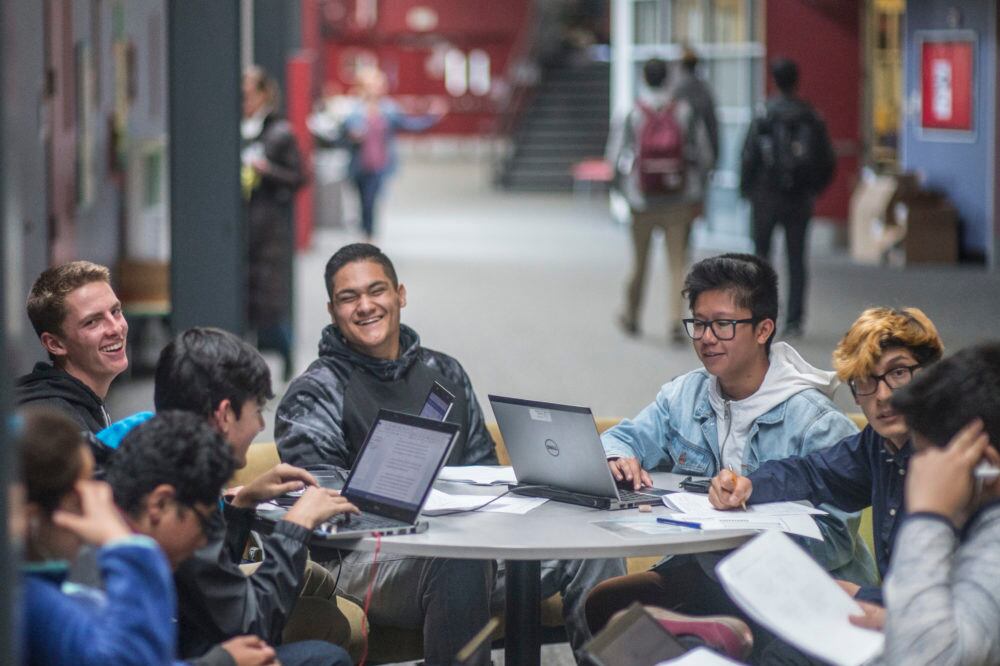Colorado voters continue to support school choice at high rates — so high they’d support a state constitutional amendment to protect access to it — even as more parents feel that schools are on the wrong track.
And about two-thirds of voters said they would support giving parents of students with disabilities extra money to address their needs outside of public school.
A new poll conducted by Cygnal on behalf of the conservative education advocacy group Ready Colorado found a number of areas of broad, bipartisan agreement, a notable finding given how polarized certain education topics have become.
But the poll also found growing concern about the state of public schools. Nearly 47% of voters said schools were on the wrong track, and 55% of parents said schools are on the wrong track, compared with just 33% who thought they were on the right track.
“I hope that’s a call to action,” said Brenda Dickhoner, president and CEO of Ready Colorado. “How do we improve student outcomes and ensure all students have access to a high-quality school in their neighborhood as well as access to public school choice?”
The poll didn’t ask respondents why they felt that way. The results align with a Magellan Strategies poll from last year that found diverse reasons for dissatisfaction. In that survey, Democratic voters felt schools were underfunded and under attack, while Republican voters were more likely to say schools had become centers of liberal indoctrination.
The Cygnal poll was conducted among 540 Colorado voters in late January and has a margin of error of 4.17%. Cygnal has a B+ rating among pollsters from the website FiveThirtyEight.
This is the third year that Ready Colorado has conducted the poll, which serves as a snapshot of voter sentiments as well as a tool for Ready to show support for policies it backs.
A smaller portion of voters said education should be a top priority of state government than in 2019, but it still ranked in the top 5, with 12.9% of voters saying it should be the top priority. More voters said homelessness, crime, and government spending should be the top priority.
The poll found that a majority of voters think Colorado schools are underfunded and that teachers are underpaid. Asked how to fund schools better, just 13% wanted to raise taxes and 78% said the government should reprioritize its spending. This tracks with other Colorado surveys as well as with voter behavior at the polls, where they have shot down several statewide tax increases to fund schools.
Nearly 72% of voters support annual standardized tests to measure student learning.
The poll found 68% of voters would support a constitutional amendment guaranteeing a right to school choice. Colorado law already allows students to enroll in any school that has room and can meet their needs, even across district lines. Dickhoner said support for a constitutional amendment shows voters view this a fundamental right, and she hopes that builds support for improving transportation options and addressing other barriers to using school choice.
About half of respondents had a favorable view of charter schools, while a quarter had an unfavorable view and a fifth had no opinion. Favorable views rose to 60% after respondents heard charters described as tuition-free public schools that “have more flexibility in terms of teacher hiring and curriculum but are held accountable for student performance.”
And 65% of respondents favored funding charter schools at a level comparable to traditional public schools, including more than 60% of Democrats.
About 15% of Colorado students attend charter schools. Schools authorized by their local district get a share of local property tax revenue and have similar funding to district-run schools. Schools authorized by the state Charter School Institute don’t get that extra money and have lower per-student funding, even though some of them serve student populations with higher needs, such as immigrant students who arrived here at an older age or pregnant and parenting teens.
The state provides some extra funding, but it doesn’t close the gap. Lawmakers have maintained funding on a bipartisan basis, but Republicans have not been successful in fully funding state charter schools.
Nearly three-quarters of voters supported more money to improve math instruction, including new materials, teacher training, and after-school programming. There’s been a bipartisan push to address math learning after test scores dropped in the wake of the pandemic, and the governor’s budget proposal includes more funding for math. But specific proposals have not yet been introduced.
Ready Colorado also asked voters if they would support the creation of $1,200 education savings accounts for students with special education needs. Their parents could use the money to pay for tutoring, therapy, and other support. Two-thirds said yes.
The poll question did not explain that education savings accounts are funded with public money. When Magellan Strategies asked voters last year if they would support giving tax money to parents to pay for tutoring or other educational needs, 60% said no. Magellan asked in the context of pandemic-related learning loss, rather than special education needs.
In other states, Republican governors and legislators are pursuing education savings accounts that could be used for nearly any educational expense, including private school tuition, similar to vouchers.
That idea is unlikely to make headway in Colorado. The Democratic-controled legislature has repeatedly shot down any proposal to give public money to parents. With Colorado schools funded below the national average, lawmakers say money is better spent in public schools. In 2021, Colorado voters also shot down a proposal to use marijuana taxes to fund after-school programs and tutoring.
For Dickhoner, limited public school resources are a reason to back education savings accounts.
“We don’t fully fund special education in Colorado, so what can we do to make sure students’ needs are met?” she asked. “How do we empower parents and families to make those decisions?”
Bureau Chief Erica Meltzer covers education policy and politics and oversees Chalkbeat Colorado’s education coverage. Contact Erica at emeltzer@chalkbeat.org.







